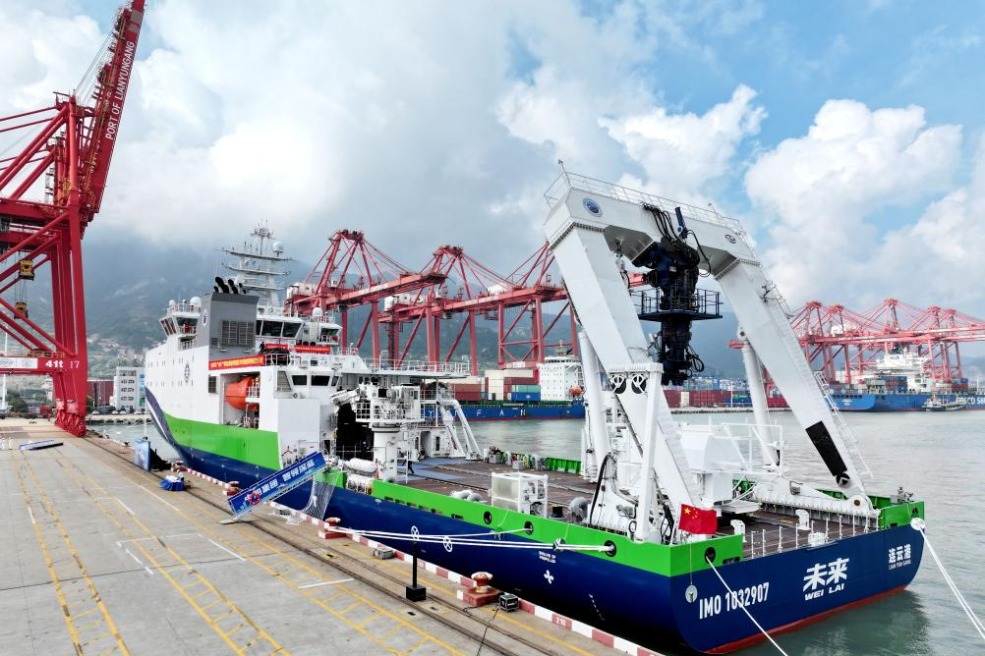New underwater system generates electricity from seawater

BEIJING - Chinese researchers have developed a low-cost underwater system to generate electricity from seawater, offering a new approach to handle short spikes in power demand and maintain longer-term steady power.
Underwater vehicles, diving robots and detectors require their own energy supply to operate independently of the mother ships for long periods of time.
The underwater challenge for power generators is to ensure a high energy density for basic power use and a high power density for activities such as rapid movement or use of a gripper.
Researchers from the East China Normal University in Shanghai, Shanghai University and the Chinese Research Academy of Environmental Sciences in Beijing reported in the German journal Angewandte Chemie that the key to the new generator is a cathode made of Prussian blue, an open framework structure with cyanide ions and iron ions which can easily accept and release electrons.
When combined with a metal anode, the structure can be used to generate electricity from seawater.
Tests show that the generator operates stably in corrosive seawater and can withstand mode switches. It ran continuously for four days in its high-energy mode without losing power. In the high-power mode, the generator can supply power to a total of 39 light-emitting diodes and propeller.
- Beijing villagers rescue 100 amid flood crisis
- Flood relief efforts stepped up in Beijing, Tianjin and Hebei
- Death toll rises to 8, 4 still missing in North China landslide
- Heavy rain, storms forecast to continue in North China till Friday
- China launches commercial carrier rocket
- Beijing suburban rail services suspended amid downpours




































